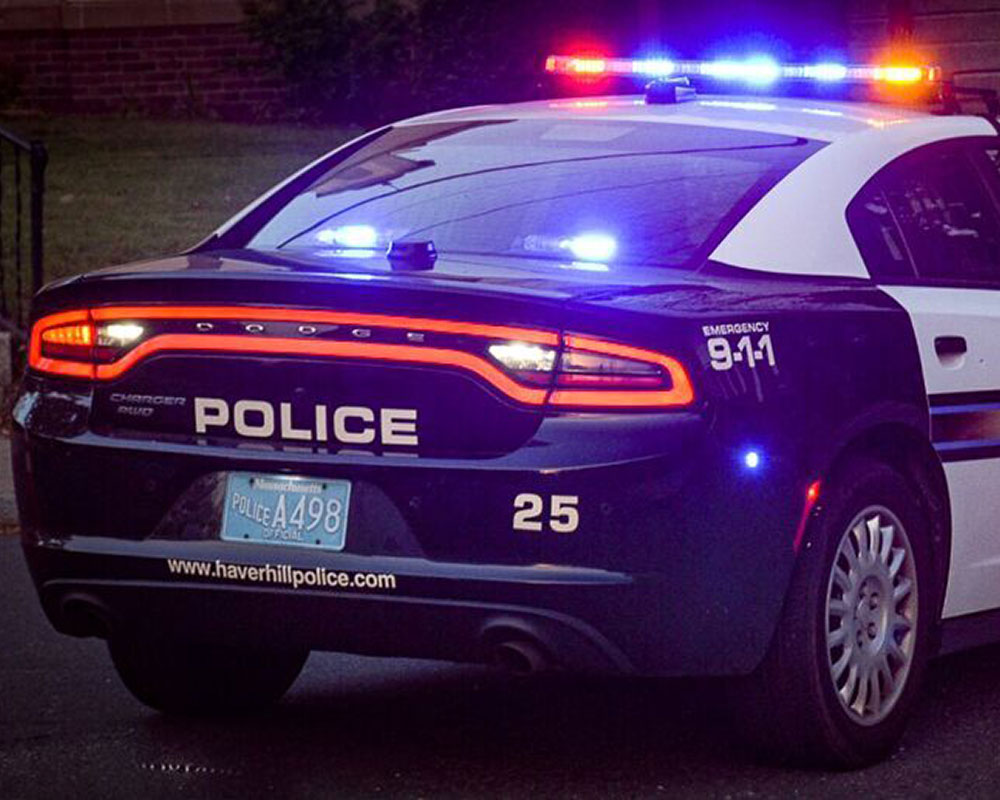Editor’s Note: The public has expressed skepticism—or worse—about the slow pace of automobile fatality investigations and the roles of police departments and the District Attorney’s office. One case dates back to last Jan. 25 when Charles Burrill was walking from his home on Groveland Street to the downtown bus station when he was struck and killed at White’s Corner. No charges have yet been brought. This story aims to shed light on what’s involved in investigations.
WHAV recently sat down with Haverhill Police accident reconstructionist Lt. Lance Powell to discuss how his department investigates car crashes and works in tandem with the Massachusetts State Police and Essex County District Attorney’s office to collect evidence and file charges when necessary.
Accident investigations can take many forms, Powell tells WHAV, with Haverhill Police taking great care to exhaustively investigate all angles of a case. Speaking hypothetically, Powell said that in the case of a car crash, Haverhill Police are first on scene to gather evidence, carry out reconstruction and complete an accident report. Depending on the severity of an incident, a team from the State Police Collision Analysis and Reconstruction Section (CARS) is called out.
However, as Powell notes, Haverhill must share the unit with Essex County’s other cities and towns, often contributing to a delay in analysis. When the CARS unit is called upon, Haverhill Police receives a 10 to 40-page crash reconstruction report from the State Police to add to the investigation.
Depending on the type of evidence collected, it may take up to a year or more to analyze, Powell said. “Let’s say there’s broken glass or shards, taking hair out of a windshield, that stuff’s going to take longer, but straight blood, they already know,” he said.
Other materials collected include vehicle inspection documents, witness statements, search warrants for toxicology or blood samples and—in the case of possible fatalities—autopsy results. In newer vehicles, electronic data recorders can offer insight into speed, use of seat belts, and even tell police when drivers were braking at certain intervals before the collision.
Once all evidence is gathered, Haverhill Police consult with State Police investigators and the Essex County Assistant District Attorney to determine if there is probable cause to bring criminal charges against a party. One thing is clear, says Powell: Most serious cases take a while.
“We have to protect both sides. You could be driving down the street and run over somebody and they die. That doesn’t mean you’re at fault,” he explained to WHAV. “What was the pedestrian doing: Were they in the crosswalk? Even if they were, did they dart out in front of you? Were you doing the speed limit? Were you on your phone? What were the road conditions? There’s so many factors we have to take into consideration. I’ve had plenty of cases where the pedestrian was at fault.”
Currently, Haverhill Police has three on-call accident reconstructionists: Powell, Lt. Joseph Ingham and Sgt. Kevin Lynch. Lynch also serves as the department’s drug recognition expert. At present, there is no formalized testing for marijuana impairment, but Powell tells WHAV his department uses techniques similar to assessing alcohol impairment to determine if a person is under the influence of drugs.

